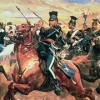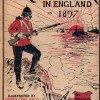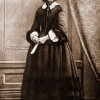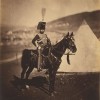
James Najarian, “Alexander Burnes’s Travels into Bokhara (1834)”
Alexander Burnes’s Travels into Bokhara (1834) is a foundational text of the British fascination with Central Asia, both in a geopolitical sense—the “Great Game” of the rivalry between Britain and Russia in Asia—and in a literary one. It is the most prominent of many travelogues of Afghanistan and Central Asia that relate experiences from the late 1820s to late 1830s, preceding the First Anglo-Afghan War (1839-42). Burnes’s Travels sold well and were immediately translated into French. For a time “Bokhara Burnes” was a literary celebrity. Yet the sensation of his Travels led him to another, less successful appointment in Kabul and finally to his third and final appointment there, as British envoy during the war. Not only was Burnes Britain’s leading Afghan expert; he also became the Afghans’ leading target. His murder sparked the course of the British rout. With a turn to his Persian secretary Mohan Lal Kashmiri’s account of the same travels in his Travels in the Panjab, this paper examines Burnes, his career, and his Travels in order to understand the events and his text’s role in them.

Martin Danahay “‘Valiant Lunatics’: Heroism and Insanity in British and Russian Reactions to the Charge of the Light Brigade”
The charge of the Light Brigade has always elicited ambivalent responses from eyewitnesses. Even though he was writing at a remove of time and distance from the action, Alfred, Lord Tennyson’s poem echoes the conflicted reactions of both British and Russian witnesses who characterized the charge both as heroic and an act of insanity. Tennyson’s polyvocal term “wild” in particular holds in suspense both admiration and the suggestion that it was an insane act, which resonates with accounts by Russians on the receiving end of the charge. Russian cavalry officers were convinced that their British counterparts were brave but deranged “valiant lunatics” after witnessing the charge. Both the British and Russians had difficulty in coming to terms with this incident, as they did with the Crimean War as a whole, because it was neither wholly a victory nor defeat for either side. As a result, even monuments to the Crimean War such as that in Waterloo Place or those in Sevastopol attest to loss as much as victory, and like the charge of the Light Brigade itself represent heroic failure.

Anna Vaninskaya, “Russian Nihilists and the Prehistory of Spy Fiction”
Although the rise of modern British spy fiction is usually dated to the Edwardian period, with the names of Kipling, Conrad and Buchan among the first to be mentioned, the genre owes its existence to a little-noted precursor in late Victorian popular literature: the Russian Nihilist romance. Many of the ideological and formal aspects of the genre can be traced back to the tales of police espionage, terrorist revolutionaries, and double agents that titillated audiences in the last decades of the nineteenth century. In the 1880s and 90s, the age-old literary figure of the spy underwent a number of transformations that would establish its new meanings for the new century.

Lara Kriegel, “On the Death—and Life—of Florence Nightingale, August 1910”
This essay examines the death, and the life, of Florence Nightingale, the great nursing heroine of the Crimean War. An eminent Victorian, Nightingale passed away at the ripe old age of ninety in 1910, at a time when Britain was witnessing great internal strife and facing looming international tension. By that moment, the Crimean War was a thing of the distant past. Even so, Nightingale’s death served as a national tonic. It allowed mourners to rekindle the myths of Nightingale’s lifetime that had unified a ravaged nation in the wake of the Crimean War. Nightingale’s most important reforming efforts, which included nursing education, army improvement, and sanitary reform, both in Britain and in India, would postdate the Crimean War. However, the image of a young Nightingale ministering to the troops in the Crimea would remain the dominant one, not just in her life, but at her death as well. As it assesses the death and life of Nightingale, this essay focuses on two moments of celebrity and mythmaking in the long career of the heroine: the making of her legend in the Crimea and its resurrection at her death. It follows earlier literature, both generated during the nineteenth century and written by those who study it, establishing Nightingale as the avatar of Victorian womanhood. Accordingly, it seeks to understand Nightingale’s passing as a belated death knell to the Victorian age.

Stefanie Markovits, “On the Crimean War and the Charge of the Light Brigade”
The Crimean War sheds light on mid-Victorian perceptions of class and national identity. As literary and visual representations of the war reveal, reactions to this conflict were both more nuanced and more ambivalent than our preconceptions about Victorian jingoism might anticipate. The charge of the Light Brigade at Balaklava captures the ironies of a high Victorian military spectacle that frequently seemed to confuse the patriotic expectations of its home-front audience. A new form of heroism grew out of the bewildering experience of the Light Brigade’s defeat—and a new sense of national identity that was based in part on this new heroism.
